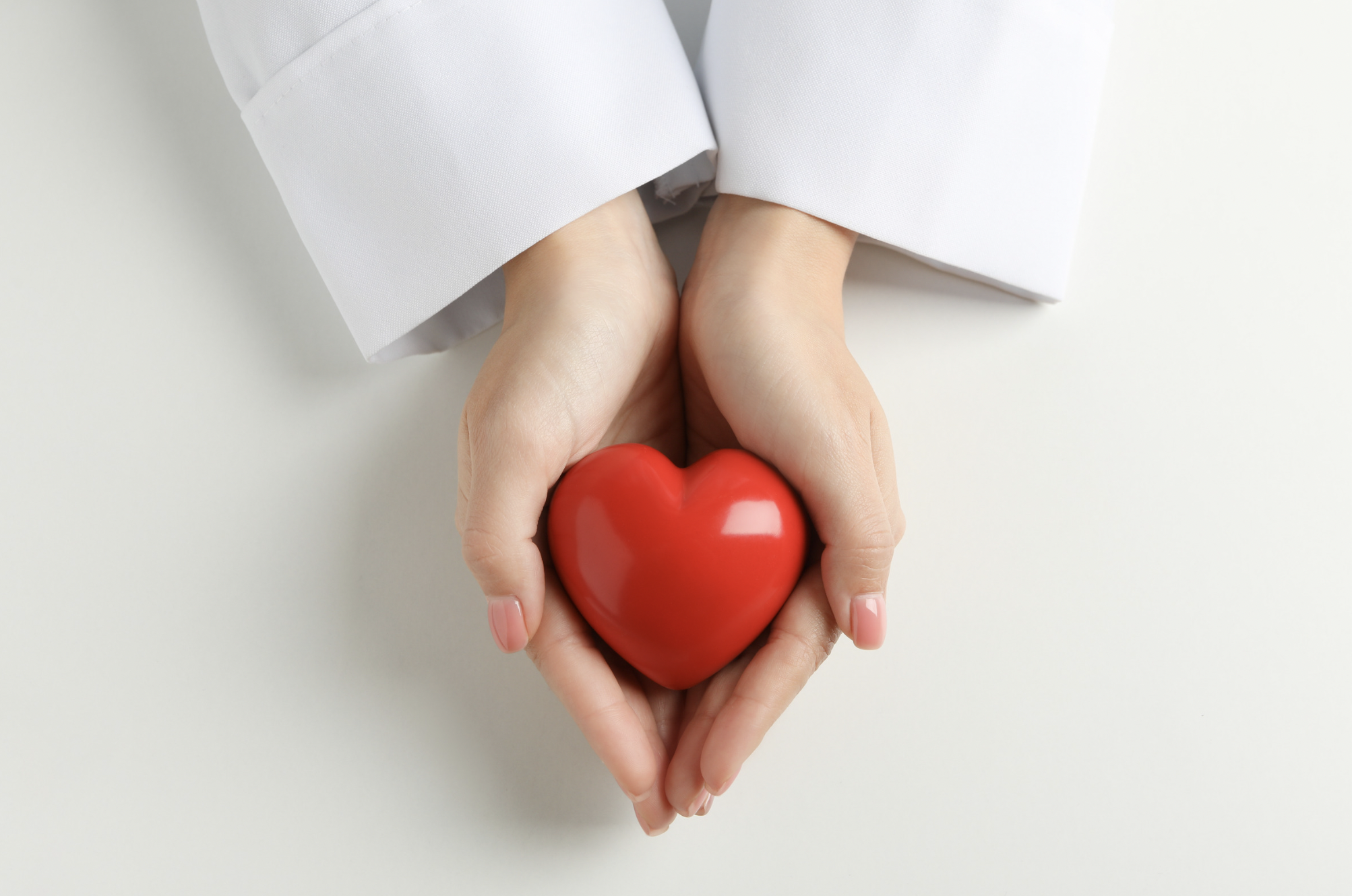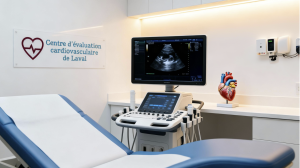Opening the door to better management of your heart health starts with understanding the tools available for diagnosis and monitoring.
In the vast world of cardiology, two devices stand out for their usefulness and efficiency: the Cardiostat and the Holter.
Although these two devices are essential for healthcare professionals, their differences are often blurred for many of us.
This misunderstanding can lead to unnecessary ambiguity when it comes to assessing your current or future cardiovascular status.
So how do you tell the difference between a Cardiostat and a Holter? 🤔
What heart problems can each of these tools help to diagnose?
And above all, how do you know if you need it?
The aim here is simple: to clarify the differences between these two techniques, so that you have all the keys you need to better monitor the state of your heart.
What is a Cardiostat and a Holter?
To approach the technical and practical aspects of cardiac monitoring devices with confidence, it is essential to define and understand what a cardiostat and a Holter are.
Both devices play a crucial role in the precise diagnosis of cardiac conditions, and are distinguished by their specific features and uses.
Let's dive into the world of cardiac monitoring together. 👇
Definition and use of Cardiostat
Let's begin our exploration with a basic definition: what exactly is a Cardiostat?
A Cardiostat is mainly used as a long-term mobile electrocardiogram (ECG) monitor.
This means that the device accompanies its wearer during daily activities, while analyzing heart rate in a variety of contexts.
The remarkable feature of Cardiostat is its operating principle.
This device records all your heartbeats over a given period - usually 24 hours, but up to 14 days - and transmits this information to a specialized cardiovascular assessment center.
This gives healthcare professionals a complete picture of your heart rhythm, enabling them to make an accurate diagnosis.
Cardiostat's ability to monitor the heart in real time gives doctors invaluable information about the frequency and rhythm of your heartbeat.
This is essential to detect any abnormalities that could affect heart health.
The Holter: an important cardiac device
Let's move on to the Holter: what does it do?
Rest assured, the Holter is not as obscure as its name suggests!
It's simply another type of portable ECG monitor designed specifically with one main mission: to capture all the electrical activity generated by your heart over an often 24-hour period.
The crucial role it plays in our health is similar to that of the Cardiostat: monitoring every heartbeat and collecting various vital parameters such as pulse rate and regularity, or electrical variations in the heart muscle throughout the day.
The main purpose of the Holter is to help identify potential problems that might not be detected during traditional clinical examinations - such as palpitations felt only during specific activities or in certain positions.
Cardiostat vs Holter: the main differences
Now that we've explored what a Cardiostat and a Holter are, it's time to highlight their differences within the vast but precise field of cardiovascular diagnostics.
Although both are used to monitor heart rate using mobile ECG technology, their main difference is their maximum recording time.
As mentioned earlier, the Cardiostat offers a complete view of your heart rate for up to 14 consecutive days in your real-life everyday life, while the Holter focuses on a generally consecutive 24-hour period.
The choice between these two systems therefore largely depends on the type of monitoring required.
If you frequently experience particular symptoms (e.g. chest pain or dizziness) that require prolonged monitoring to be properly analyzed and linked to your daily activities, using a Cardiostat may be the appropriate decision.
On the other hand, if you need a more precise analysis of a limited period of time, in particular to assess the impact on your heart rate after a distinct event (such as intense sporting activity), the Holter would undoubtedly be the right choice.
Ultimately, the major difference between these two ECG monitors lies in their duration and purpose of follow-up: the Cardiostat leans towards prolonged study of long-view diagnoses, whereas the Holter focuses on a complete, but more immediate and specific analysis.

Heart problems to monitor with Cardiostat and Holter
Every year, thousands of people express concern about cardiovascular disease, which can be silent but deadly.
Two invaluable tools are available to aid diagnosis: the Cardiostat and the Holter.
In this medical maze, we might wonder what conditions these devices detect and what signs they respond to. 👇
Cardiostat's field of action
As a portable electrocardiograph, Cardiostat is designed to record the heart's electrical activity over an extended period.
He is particularly interested in arrhythmias, unpredictable abnormalities of the heart rhythm, which do not necessarily present themselves during a medical consultation.
For example, paroxysmal supraventricular tachycardia (attacks of abnormally rapid palpitations) or fleeting episodes of atrial fibrillation can be recorded thanks to the device's long-term recording system.
If you experience unusual sensations such as dizziness or fainting for no apparent reason, this could well signal a hidden arrhythmia.
Diseases commonly monitored by Holter
Holter monitoring is specifically designed to detect transient cardiac anomalies.
The Holter is therefore used to monitor a wide range of diseases, such as pathological sinus bradycardia (slow, irregular rhythm), silent myocardial infarction (absence of pain, but presence of an abnormality in the heart muscle) or asymptomatic aortic stenosis (narrowing of the aortic valve with no obvious symptoms).
The indispensability of both devices
The use of a Cardiostat or Holter generally depends on the symptoms experienced by the patient.
No pathology is excluded from diagnosis thanks to these technologies!
Palpitations, episodes of syncope or shortness of breath can thus be explained by observing cardiac electrical activity.
How does Centre Cardio Laval support you with these technologies?
Thanks to its wide range of technological services, Centre Cardio Laval can provide tailored care for all types of cardiovascular problems.
Because every patient is unique, we combine expertise and support for personalized care. 👇
The essential role of the Cardiostat in our services
Cardiostat is an integral part of our core technology for several reasons.
Firstly, in a context where many cardiovascular pathologies are silent, this tool provides clarity and diagnostic guidance continuously over 24 hours!
Secondly, thanks to the Cardiostat, our doctors can effectively analyze your heart rhythm over a longer period of time.
This is particularly useful if you're experiencing unusual discomforts that struggle to manifest themselves during a regular consultation.
Finally, it offers the possibility of continuously reassessing drug treatments introduced to manage heart disease.
All you have to do is activate the device when you feel an abnormal symptom: a godsend!
Better monitoring with Holter
Holter monitoring also has its place at Centre Cardio Laval!
Tracked for 24 to 48 hours, it provides us with very solid data on your daily heart rate.
Whether it's to detect a temporary or permanent anomaly, the Holter is our best ally!
Why?
Because your recorded beats will be thoroughly examined by our cardiologists to detect any type of arrhythmia that could affect your daily health and comfort.
In fact, this continuous heart rate analysis also provides valuable information on your heart's response to physical or stressful activities, especially if you are already being monitored for cardiovascular pathology.
With these two master technologies in our range of diagnostic tools, we provide a service that is exceptionally customizable to your individual needs, because "to each his own" has never been truer!
The importance of taking care of your cardiovascular health
Everyone needs to take a proactive approach to heart health. The decisions you make today can have a significant impact on your future well-being. 👇
Prevention is better than cure: the importance of cardiac monitoring
Preventing cardiovascular disease requires a combination of interventions, such as maintaining a healthy weight, a balanced diet and regular exercise.
It's essential to monitor your heart rate regularly for potential warning signs.
Technologies such as the Cardiostat and Holter play a crucial role here, enabling continuous recording of heart rate and rhythm.
Living with a heart monitoring device
Adopting Cardiostat or Holter technologies is not synonymous with a less pleasant or hindered life.
On the contrary, these devices are designed to adapt easily to your daily routine without causing too much discomfort, while giving you peace of mind thanks to their precise tracking.
Center Cardio Laval's recommendations for your heart health
In addition to the many services offered by our center, we at Cardio Laval believe it's essential for every individual to know the basics about their own heart, including how to maintain optimal cardiovascular indicators at all ages.
Adopting a healthy lifestyle that includes a balanced diet, regular exercise and quitting smoking is essential to ensure that your heart functions properly.
Monitoring heart health in the digital age
In today's age of ever-evolving technology, it's important to use devices like the Holter or Cardiostat to help you monitor your heart health on a daily basis.
They can help you detect any abnormalities early on, so you can act quickly in collaboration with healthcare professionals.

Trust Centre Cardio Laval to monitor your heart health
The efficient and optimal care provided by our dedicated team, combined with our modern equipment, makes Centre Cardio Laval an undisputed benchmark in our field.
We invite you to contact us so that we can work closely with you to proactively monitor your cardiovascular well-being on an ongoing basis.
Thanks to the Cardiostat or Holter that we offer as part of our services, enjoy reassuring monitoring 24 hours a day. 🫀
At the first sign of trouble, switch to appropriate treatments.
Don't take your symptoms lightly or put off dealing with them.
Take concrete action today to ensure a healthy, rewarding future where everyone can enjoy life to the full, free from unnecessary worries and fears.
Center Cardio Laval is here to help you accomplish this complex but essential mission!
Don't wait any longer, and let's work together for your heart, because after all, it's your heart that sets the pace for your life!
Make an appointment with us today to discuss your specific cardiac diagnostic needs further, and benefit from proven expertise that's sure to put the odds in your favor.
Don't hesitate to make an appointment on the next link. 🖥️
Our team will be delighted to work closely with you to provide optimum protection for the key engine that is your heart!



